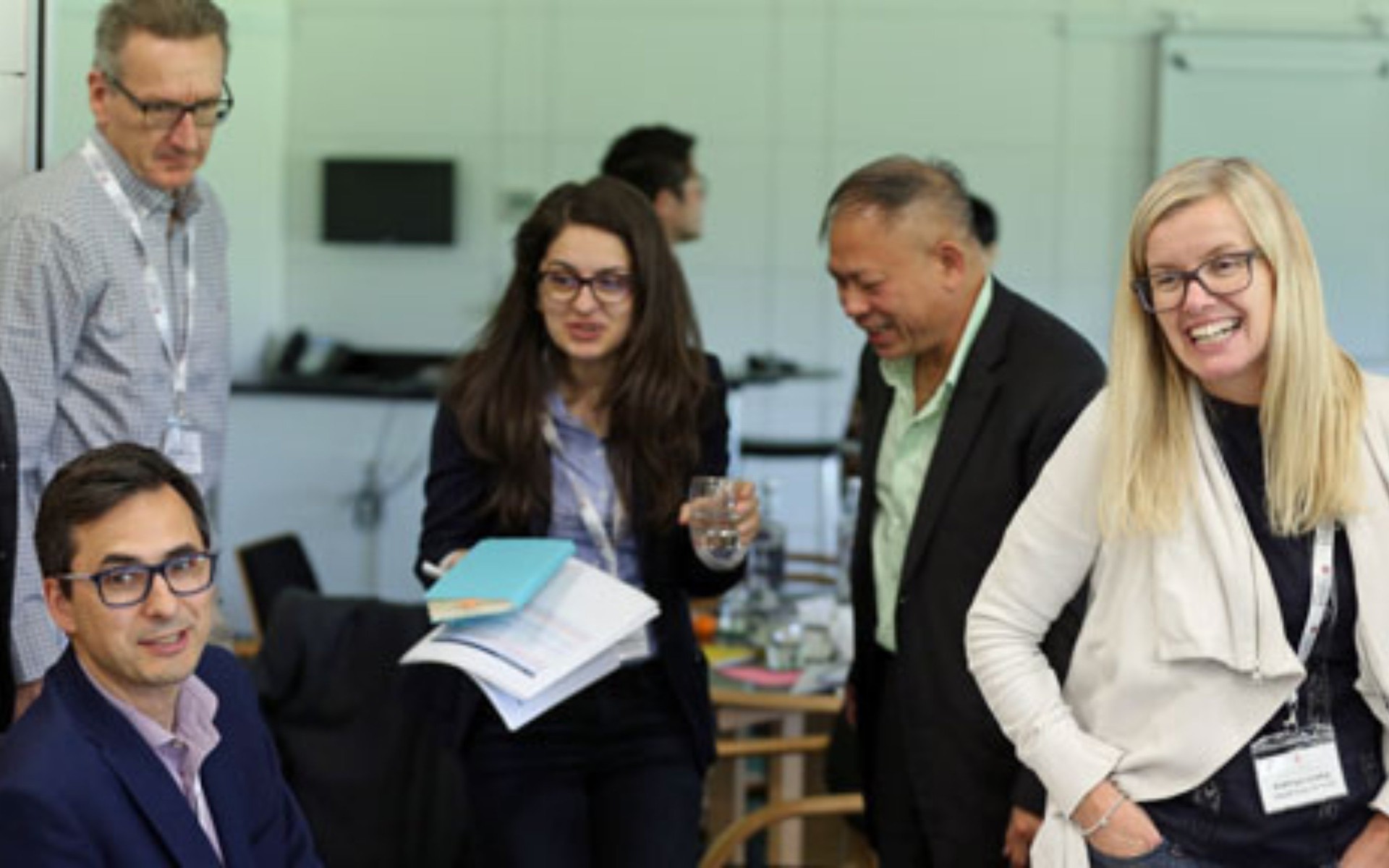Partner Spotlight
People, Nature, Climate: The University of Cambridge’s 3 Pillars for Empowering a More Sustainable Future with GetSmarter
Written by Ann-Mari Höfinger on Oct 25, 2021
Related content: Leadership, Strategic Partnerships

I remember sitting down with my mother at age 11 and asking about the hole in the ozone layer. “Manufactured halocarbon refrigerants.” “Propellants and solvents.” “CFCs.” What did all these mean? But my mother told me not to worry—there was no way this would impact anything in my lifetime.
Fast forward a couple of decades, and while the hole in the ozone has been contracting thanks to collaborative efforts between nations, we’re now aware of so many more sustainability challenges our Earth faces. For example, forests are being destroyed on a scale of one football field lost every second. The carbon dioxide in our atmosphere that’s contributing to global warming is the highest it’s ever been. And 2020 had the highest greenhouse gas emissions on record, despite all the economic shutdowns from the pandemic. All this to say that the climate is continually changing. Now I’m a mother—and every day, I ask myself: What can I do to preserve my children’s future? Fortunately, working with GetSmarter, a 2U, Inc. brand, has helped me find some answers.
As GetSmarter’s head of product marketing, I’m proud that our company helps power and support the growing portfolio of sustainability-focused short courses developed by the University of Cambridge Institute for Sustainability Leadership (CISL). In conjunction with Cambridge’s mission, I’ve made it my mission to spearhead the creation of reports that help educate people about globally significant topics related to our short course offerings.

GetSmarter’s new Sustainability Report explains how we’re working with partners like the University of Cambridge to empower leaders with the tools they need to address the most pressing sustainability issues. Developed from intensive research that included a survey of 546 professionals from 65 countries, the report uncovers four major themes: 1) sustainability is addressing modern challenges like social equality and responsible governance, 2) individuals’ lifestyle choices are driving the agenda for business, 3) organisations need to weave sustainable practices into their DNA in order to adapt, and 4) hybridized skills are the key to future-proofing businesses and careers. The report then outlines how leaders can best prepare for a more sustainable future.
I recently spoke with Martin Roberts, CISL’s director of digital learning programmes, to get his take on how CISL and GetSmarter together are continuing to successfully address the sustainability imperative, train impactful leaders, and help businesses integrate sustainable practices in every way. In the five years since we first partnered together, over 10,000 participants from around the world have taken CISL short courses—meaning there are thousands of people out there who, with our help, are now actively changing their organizations and spheres of influence.
It’s very important that our courses don’t just hit people with the risks. Instead, they’re very much about the enormous opportunities that come with transitioning to a more sustainable business.— Martin Roberts, director of digital learning programmes, University of Cambridge Institute for Sustainability Leadership
In your own words, what is the definition of “sustainability,” and why is it important to take action around this initiative?
At CISL, we define sustainability as individuals and businesses being able to meet their own needs without compromising the ability of future generations and other species to meet theirs. COVID-19 really brought the sustainability imperative to the forefront. If we could mobilize funding across various countries to respond to the pandemic and move speedily to create effective strategies, why can't we do that for climate change? And why can't we do that in terms of restoring nature?
So, how would you describe the ultimate mission of CISL?
Our overall mission is to empower individuals and organizations to take leadership on three main areas. One, how do we decarbonize our lives and the companies we work for in response to climate change? Two, how do we protect and restore nature—not just its intrinsic value, but its commercial value as well? And three, how do we build inclusive and resilient societies? As an organization, we’re very objective-led and impact-led.
Why are these three key areas so imperative to modern businesses?
The transition from business-as-usual to net-zero decarbonization should be at the forefront of everyone’s minds, since not taking action is an enormous risk. There's a growing requirement from the investment community for businesses to reveal and disclose their vulnerability to climate change. They’re also realizing their supply chains are vulnerable to the destruction and degradation of nature—soil, water, and biodiversity. Finally, people are questioning the role of business in society. Is its purpose to just make a profit? The conclusion from a lot of people is that businesses need to have a clear purpose and make a positive impact on society—and be able to articulate and follow through on that.

Rather than using a fear-based approach, CISL short courses emphasize an opportunity-based approach to tackling sustainability issues. Can you elaborate on this?
It’s very important that our courses don’t just hit people with the risks. Instead, they’re very much about the enormous opportunities that come with transitioning to a more sustainable business. Imagine a zero-carbon future, for example. It's clean. It’s efficient. It's the kind of world we want to live in. We tell students that the transition is going to happen anyway. The question is whether you want to manage that process or be dragged along by it, because we will decarbonize the economy. That's not me being optimistic, just pragmatic. So as a company, are you going to control that process or be a dinosaur left behind?
Of everything CISL and GetSmarter have achieved together so far, what would you say are some of our greatest successes?
During the course, every individual participant creates a personal action plan to implement in their work environment or sphere of influence. From post-course follow-ups, we know that over 70% of individuals implement all or part of their plans. That's very important for CISL. Yes, we want to create great courses, but we're also looking for what happens after the course and how participants take what they've learned to implement change in their organizations.
When I sat down with GetSmarter five years ago, I had no idea how great of an impact we could have through online learning with over 10,000 participants to date. The courses we’ve created are incredibly popular, and the feedback we have from participants is overwhelmingly positive. These students stay in contact after they leave. They're part of our alumni network, but they also form their own networks. They're everywhere—and interacting with each other to solve sustainability challenges. I'm incredibly proud of that.
~~~
Latest.
Learn more about us.
At 2U, we’re on a mission—to eliminate the back row in higher education and help universities thrive in the digital age. To learn more about who we are and what we do, follow the links below.